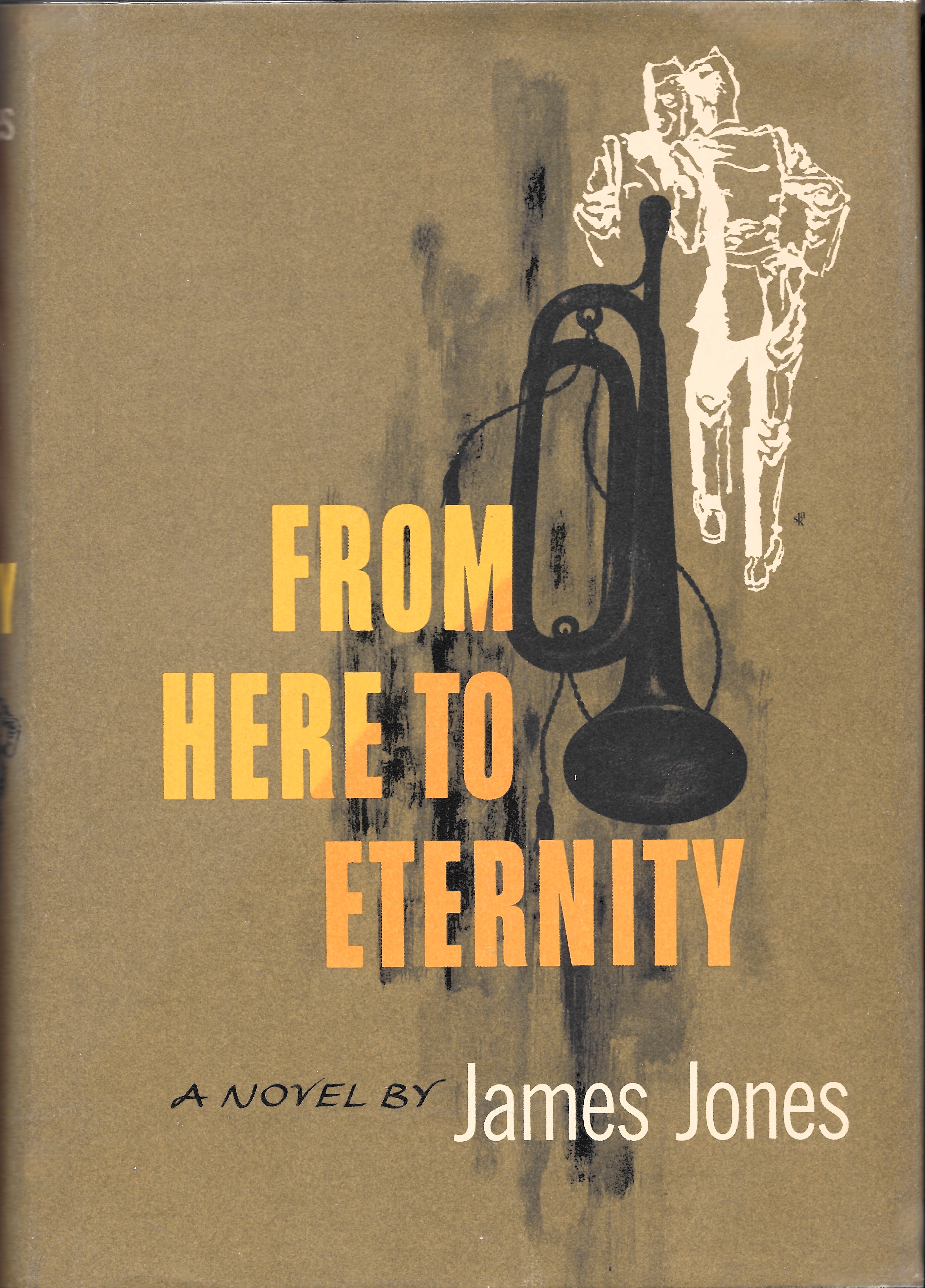Hardcover, 861 pages
English language
Published 1951 by Charles Scribner's Sons.

Hardcover, 861 pages
English language
Published 1951 by Charles Scribner's Sons.
The publishers believe that the appearance of this novel is of comparable importance to the publication of This Side of Paradise or Look Homeward, Angel. For like the first novels of Fitzgerald and Wolfe, From Here to Eternity introduces a writer who will take a commanding place in American literature.
The events of the novel occur in Hawaii during the months before Pearl Harbor. But the story might have happened anywhere, for its elements are the elements of life itself: courage, brutality, love—and above all the loneliness and separateness of the human being, the impossibility of ever touching, except momentarily, the soul of another.
The principal figures of From Here to Eternity are Private Robert E. Lee Prewitt and First Sergeant Milton Anthony Warden. Prewitt, a good welterweight and a fine bugler, has transferred from a soft berth in the rear echelon to an infantry battalion because of his …
The publishers believe that the appearance of this novel is of comparable importance to the publication of This Side of Paradise or Look Homeward, Angel. For like the first novels of Fitzgerald and Wolfe, From Here to Eternity introduces a writer who will take a commanding place in American literature.
The events of the novel occur in Hawaii during the months before Pearl Harbor. But the story might have happened anywhere, for its elements are the elements of life itself: courage, brutality, love—and above all the loneliness and separateness of the human being, the impossibility of ever touching, except momentarily, the soul of another.
The principal figures of From Here to Eternity are Private Robert E. Lee Prewitt and First Sergeant Milton Anthony Warden. Prewitt, a good welterweight and a fine bugler, has transferred from a soft berth in the rear echelon to an infantry battalion because of his stubborn belief that a man has a right to go his own way. Warden is cynical, sardonic and magnificently skilled in his trade of soldiering. These two men are in continual conflict and yet they have a deep bond—they are both Thirty-Year-Men, for whom the Regular Army is the heart and blood of life. And both are in love: Warden with his Captain's wife, Karen; Prewitt with Alma Schmidt, a prostitute with a curiously rigid code.
Prewitt, Warden, and their two women form the core of a tremendous structure, solid as Diamond Head in its utter realism. Magnificently funny at times and profoundly sad at others, From Here to Eternity has an astonishing range of feeling. Prewitt playing Taps for the last time in the melting Hawaiian darkness; the chaos and wild humor of Pearl Harbor Day at Schofield Barracks; Corporal Bloom bumbling into suicide; the outrageous tragi-comedy of Prewitt and Warden drunk in the middle of a deserted road at 2:00 a.m.—these are scenes that only a writer of James Jones' talent could have created. His secondary characters are equally memorable: the skinny, indestructible Maggio, formerly of Gimbel's Basement; the Indian, Chief Choate, the best first baseman in the Army despite his huge weight; Maylon Stark, the deadly efficient mess sergeant.
A major literary performance, From Here to Eternity is also a magnificent story. The grip of its narrative power never unflexes. The graphic realistic detail will outrage some readers; the book will arouse controversy. But it will be read and remembered.